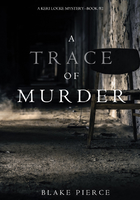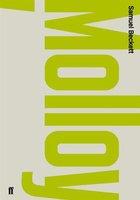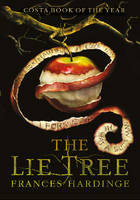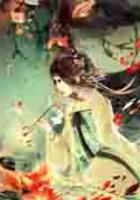With good-will and earnest purpose, the gentleman for Nowhere began, on the very next day, his researches at the heads of the seven roads. The results of his researches, as he and Phoebe afterwards set them down in fair writing, hold their due places in this veracious chronicle. But they occupied a much longer time in the getting together than they ever will in the perusal. And this is probably the case with most reading matter, except when it is of that highly beneficial kind (for Posterity) which is "thrown off in a few moments of leisure" by the superior poetic geniuses who scorn to take prose pains.
It must be admitted, however, that Barbox by no means hurried himself. His heart being in his work of good-nature, he revelled in it. There was the joy, too (it was a true joy to him), of sometimes sitting by, listening to Phoebe as she picked out more and more discourse from her musical instrument, and as her natural taste and ear refined daily upon her first discoveries. Besides being a pleasure, this was an occupation, and in the course of weeks it consumed hours. It resulted that his dreaded birthday was close upon him before he had troubled himself any more about it.
The matter was made more pressing by the unforeseen circumstance that the councils held (at which Mr. Lamps, beaming most brilliantly, on a few rare occasions assisted) respecting the road to be selected were, after all, in nowise assisted by his investigations. For, he had connected this interest with this road, or that interest with the other, but could deduce no reason from it for giving any road the preference. Consequently, when the last council was holden, that part of the business stood, in the end, exactly where it had stood in the beginning.
"But, sir," remarked Phoebe, "we have only six roads after all. Is the seventh road dumb?"
"The seventh road? Oh!" said Barbox Brothers, rubbing his chin. "That is the road I took, you know, when I went to get your little present. That is its story. Phoebe."
"Would you mind taking that road again, sir?" she asked with hesitation.
"Not in the least; it is a great high-road after all."
"I should like you to take it," returned Phoebe with a persuasive smile, "for the love of that little present which must ever be so dear to me. I should like you to take it, because that road can never be again like any other road to me. I should like you to take it, in remembrance of your having done me so much good: of your having made me so much happier! If you leave me by the road you travelled when you went to do me this great kindness," sounding a faint chord as she spoke, "I shall feel, lying here watching at my window, as if it must conduct you to a prosperous end, and bring you back some day."
"It shall be done, my dear; it shall be done."
So at last the gentleman for Nowhere took a ticket for Somewhere, and his destination was the great ingenious town.
He had loitered so long about the Junction that it was the eighteenth of December when he left it. "High time," he reflected, as he seated himself in the train, "that I started in earnest! Only one clear day remains between me and the day I am running away from. I'll push onward for the hill-country to-morrow. I'll go to Wales."
It was with some pains that he placed before himself the undeniable advantages to be gained in the way of novel occupation for his senses from misty mountains, swollen streams, rain, cold, a wild seashore, and rugged roads. And yet he scarcely made them out as distinctly as he could have wished. Whether the poor girl, in spite of her new resource, her music, would have any feeling of loneliness upon her now-just at first-that she had not had before; whether she saw those very puffs of steam and smoke that he saw, as he sat in the train thinking of her; whether her face would have any pensive shadow on it as they died out of the distant view from her window; whether, in telling him he had done her so much good, she had not unconsciously corrected his old moody bemoaning of his station in life, by setting him thinking that a man might be a great healer, if he would, and yet not be a great doctor; these and other similar meditations got between him and his Welsh picture. There was within him, too, that dull sense of vacuity which follows separation from an object of interest, and cessation of a pleasant pursuit; and this sense, being quite new to him, made him restless. Further, in losing Mugby Junction, he had found himself again; and he was not the more enamoured of himself for having lately passed his time in better company.
But surely here, not far ahead, must be the great ingenious town. This crashing and clashing that the train was undergoing, and this coupling on to it of a multitude of new echoes, could mean nothing less than approach to the great station. It did mean nothing less. After some stormy flashes of town lightning, in the way of swift revelations of red brick blocks of houses, high red brick chimney- shafts, vistas of red brick railway arches, tongues of fire, blocks of smoke, valleys of canal, and hills if coal, there came the thundering in at the journey's end.
Having seen his portmanteaus safely housed in the hotel he chose, and having appointed his dinner hour, Barbox Brothers went out for a walk in the busy streets. And now it began to be suspected by him that Mugby Junction was a Junction of many branches, invisible as well as visible, and had joined him to an endless number of by-ways. For, whereas he would, but a little while ago, have walked these streets blindly brooding, he now had eyes and thoughts for a new external world. How the many toiling people lived, and loved, and died; how wonderful it was to consider the various trainings of eye and hand, the nice distinctions of sight and touch, that separated them into classes of workers, and even into classes of workers at subdivisions of one complete whole which combined their many intelligences and forces, though of itself but some cheap object of use or ornament in common life; how good it was to know that such assembling in a multitude on their part, and such contribution of their several dexterities towards a civilising end, did not deteriorate them as it was the fashion of the supercilious Mayflies of humanity to pretend, but engendered among them a self-respect, and yet a modest desire to be much wiser than they were (the first evinced in their well-balanced bearing and manner of speech when he stopped to ask a question; the second, in the announcements of their popular studies and amusements on the public walls); these considerations, and a host of such, made his walk a memorable one. "I too am but a little part of a great whole," he began to think; "and to be serviceable to myself and others, or to be happy, I must cast my interest into, and draw it out of, the common stock."
Although he had arrived at his journey's end for the day by noon, he had since insensibly walked about the town so far and so long that the lamp-lighters were now at their work in the streets, and the shops were sparkling up brilliantly. Thus reminded to turn towards his quarters, he was in the act of doing so, when a very little hand crept into his, and a very little voice said:
"Oh! if you please, I am lost!"
He looked down, and saw a very little fair-haired girl.
"Yes," she said, confirming her words with a serious nod. "I am indeed. I am lost!"
Greatly perplexed, he stopped, looked about him for help, descried none, and said, bending low.
"Where do you live, my child?"
"I don't know where I live," she returned. "I am lost."
"What is your name?"
"Polly."
"What is your other name?"
The reply was prompt, but unintelligible.
Imitating the sound as he caught it, he hazarded the guess, "Trivits."
"Oh no!" said the child, shaking her head. "Nothing like that."
"Say it again, little one."
An unpromising business. For this time it had quite a different sound.
He made the venture, " Paddens?"
"Oh no!" said the child. "Nothing like that."
"Once more. Let us try it again, dear."
A most hopeless business. This time it swelled into four syllables. "It can't be Tappitarver?" said Barbox Brothers, rubbing his head with his hat in discomfiture.
"No! It ain't," the child quietly assented.
On her trying this unfortunate name once more, with extraordinary efforts at distinctness, it swelled into eight syllables at least.
"Ah! I think," said Barbox Brothers with a desperate air of resignation, "that we had better give it up."
"But I am lost," said the child, nestling her little hand more closely in his, "and you'll take care of me, won't you?"
If ever a man were disconcerted by division between compassion on the one hand, and the very imbecility of irresolution on the other, here the man was. "Lost!" he repeated, looking down at the child. "I am sure I am. What is to be done?"
"Where do you live?" asked the child, looking up at him wistfully.
"Over there," he answered, pointing vaguely in the direction of his hotel.
"Hadn't we better go there?" said the child.
"Really," he replied, "I don't know but what we had."
So they set off, hand-in-hand. He, through comparison of himself against his little companion, with a clumsy feeling on him as if he had just developed into a foolish giant. She, clearly elevated in her own tiny opinion by having got him so neatly out of his embarrassment.
"We are going to have dinner when we get there, I suppose?" said Polly.
"Well," he rejoined, "I-Yes, I suppose we are."
"Do you like your dinner?" asked the child.
"Why, on the whole," said Barbox Brothers, "yes, I think I do."
"I do mine," said Polly. "Have you any brothers and sisters?"
"No. Have you?"
"Mine are dead."
"Oh!" said Barbox Brothers. With that absurd sense of unwieldiness of mind and body weighing him down, he would have not known how to pursue the conversation beyond this curt rejoinder, but that the child was always ready for him.
"What," she asked, turning her soft hand coaxingly in his, "are you going to do to amuse me after dinner?"
"Upon my soul, Polly," exclaimed Barbox Brothers, very much at a loss, "I have not the slightest idea!"
"Then I tell you what," said Polly. "Have you got any cards at your house?"
"Plenty," said Barbox Brothers in a boastful vein.
"Very well. Then I'll build houses, and you shall look at me. You mustn't blow, you know."
"Oh no," said Barbox Brothers. "No, no, no. No blowing. Blowing's not fair."
He flattered himself that he had said this pretty well for an idiotic monster; but the child, instantly perceiving the awkwardness of his attempt to adapt himself to her level, utterly destroyed his hopeful opinion of himself by saying compassionately: "What a funny man you are!"
Feeling, after this melancholy failure, as if he every minute grew bigger and heavier in person, and weaker in mind, Barbox gave himself up for a bad job. No giant ever submitted more meekly to be led in triumph by all-conquering Jack than he to be bound in slavery to Polly.
"Do you know any stories?" she asked him.
He was reduced to the humiliating confession: "No."
"What a dunce you must be, mustn't you?" said Polly.
He was reduced to the humiliating confession: "Yes."
"Would you like me to teach you a story? But you must remember it, you know, and be able to tell it right to somebody else afterwards."
He professed that it would afford him the highest mental gratification to be taught a story, and that he would humbly endeavour to retain it in his mind. Whereupon Polly, giving her hand a new little turn in his, expressive of settling down for enjoyment, commenced a long romance, of which every relishing clause began with the words: "So this," or, "And so this." As, "So this boy;" or, "So this fairy;" or, "And so this pie was four yards round, and two yards and a quarter deep." The interest of the romance was derived from the intervention of this fairy to punish this boy for having a greedy appetite. To achieve which purpose, this fairy made this pie, and this boy ate and ate and ate, and his cheeks swelled and swelled and swelled. There were many tributary circumstances, but the forcible interest culminated in the total consumption of this pie, and the bursting of this boy. Truly he was a fine sight, Barbox Brothers, with serious attentive face, and ear bent down, much jostled on the pavements of the busy town, but afraid of losing a single incident of the epic, lest he should be examined in it by-and-by, and found deficient.
Thus they arrived at the hotel. And there he had to say at the bar, and said awkwardly enough; "I have found a little girl!"
The whole establishment turned out to look at the little girl. Nobody knew her; nobody could make out her name, as she set it forth-except one chamber-maid, who said it was Constantinople- which it wasn't.
"I will dine with my young friend in a private room," said Barbox Brothers to the hotel authorities, "and perhaps you will be so good as to let the police know that the pretty baby is here. I suppose she is sure to be inquired for soon, if she has not been already. Come along, Polly."
Perfectly at ease and peace, Polly came along, but, finding the stairs rather stiff work, was carried up by Barbox Brothers. The dinner was a most transcendant success, and the Barbox sheepishness, under Polly's directions how to mince her meat for her, and how to diffuse gravy over the plate with a liberal and equal hand, was another fine sight.
"And now," said Polly, "while we are at dinner, you be good, and tell me that story I taught you."
With the tremors of a Civil Service examination upon him, and very uncertain indeed, not only as to the epoch at which the pie appeared in history, but also as to the measurements of that indispensable fact, Barbox Brothers made a shaky beginning, but under encouragement did very fairly. There was a want of breadth observable in his rendering of the cheeks, as well as the appetite, of the boy; and there was a certain tameness in his fairy, referable to an under-current of desire to account for her. Still, as the first lumbering performance of a good-humoured monster, it passed muster.
"I told you to be good," said Polly, "and you are good, ain't you?"
"I hope so," replied Barbox Brothers.
Such was his deference that Polly, elevated on a platform of sofa cushions in a chair at his right hand, encouraged him with a pat or two on the face from the greasy bowl of her spoon, and even with a gracious kiss. In getting on her feet upon her chair, however, to give him this last reward, she toppled forward among the dishes, and caused him to exclaim, as he effected her rescue: "Gracious Angels! Whew! I thought we were in the fire, Polly!"
"What a coward you are, ain't you?" said Polly when replaced.
"Yes, I am rather nervous," he replied. "Whew! Don't, Polly! Don't flourish your spoon, or you'll go over sideways. Don't tilt up your legs when you laugh, Polly, or you'll go over backwards. Whew! Polly, Polly, Polly," said Barbox Brothers, nearly succumbing to despair, "we are environed with dangers!"
Indeed, he could descry no security from the pitfalls that were yawning for Polly, but in proposing to her, after dinner, to sit upon a low stool. "I will, if you will," said Polly. So, as peace of mind should go before all, he begged the waiter to wheel aside the table, bring a pack of cards, a couple of footstools, and a screen, and close in Polly and himself before the fire, as it were in a snug room within the room. Then, finest sight of all, was Barbox Brothers on his footstool, with a pint decanter on the rug, contemplating Polly as she built successfully, and growing blue in the face with holding his breath, lest he should blow the house down.
"How you stare, don't you?" said Polly in a houseless pause.
Detected in the ignoble fact, he felt obliged to admit, apologetically:
"I am afraid I was looking rather hard at you, Polly."
"Why do you stare?" asked Polly.
"I cannot," he murmured to himself, "recall why.-I don't know, Polly."
"You must be a simpleton to do things and not know why, mustn't you?" said Polly.
In spite of which reproof, he looked at the child again intently, as she bent her head over her card structure, her rich curls shading her face. "It is impossible," he thought, "that I can ever have seen this pretty baby before. Can I have dreamed of her? In some sorrowful dream?"
He could make nothing of it. So he went into the building trade as a journeyman under Polly, and they built three stories high, four stories high; even five.
"I say! Who do you think is coming?" asked Polly, rubbing her eyes after tea.
He guessed: "The waiter?"















